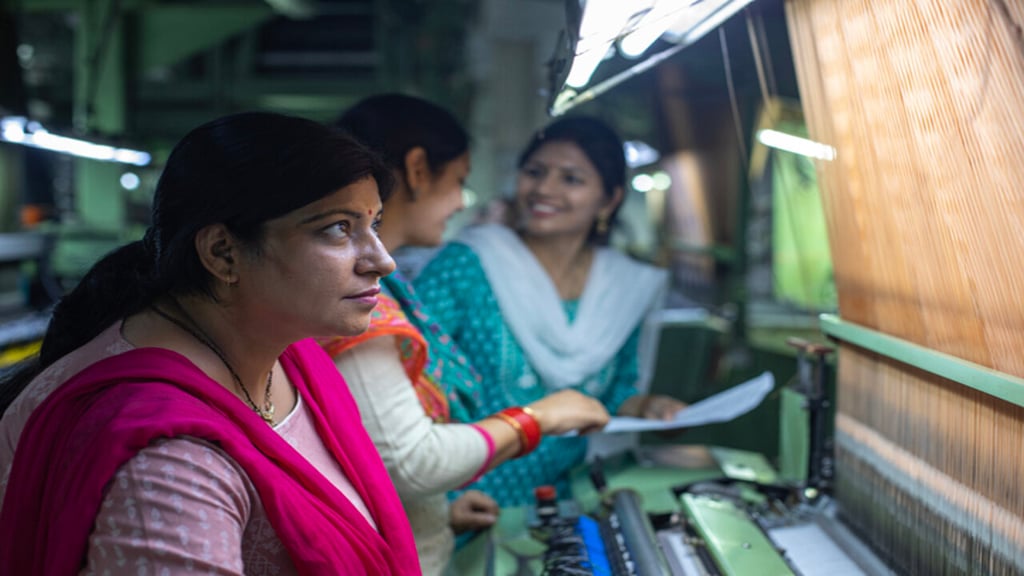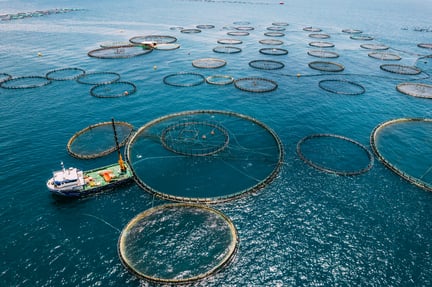Originally published during COP30, this article examines an issue that now sits firmly in the delivery phase of climate action. As organisations move from commitments to implementation, the insights explored here remain central to achieving credible climate performance.
A new chapter for just transition
COP30 in Belém, Brazil (6–21 November) delivered incremental progress on a just transition. Negotiators strengthened the Just Transition Work Programme (JTWP) - introduced at COP27 and expanded at COP28 - while confronting the challenge of moving beyond a fossil fuel economy in ways that genuinely safeguard human rights, communities, and workers. Discussions centered not only on the pace of the energy transition but on its fairness, anchored in rights and participation, one that includes respect for human and labour rights, Free, Prior and Informed Consent for Indigenous peoples, genuine social dialogue with workers, and meaningful inclusion of affected rightsholders.
Yet, a decade after the Paris Agreement, progress remains limited. Climate action has slowed, inequality deepened, and vulnerable communities bear disproportionate impacts. Existing initiatives often lack alignment with national climate goals and fail to address local contexts and listen to stakeholders. These gaps were perhaps most strikingly illustrated at COP30 by Indigenous demonstrations – often excluded from negotiation, they resorted to blocking access to the venue and staged protests to make their voices and attempts heard.
In response, COP30 launched the Belém Action Mechanism (BAM) - a strengthened framework to overcome fragmentation and serve as a global hub for dialogue, best practices, and knowledge-sharing to guide policy and corporate action on Just Transition.
COP30 was a chance to show that climate ambition, human rights and value creation are not competing goals but mutually reinforcing imperatives
The Belém Action Mechanism: Why it matters
The Belém Action Mechanism (BAM), a UNFCCC governance and implementation framework, is regarded as one of the key outcomes of COP30. Currently, national climate targets (NDCs) and corporate climate commitments remain disconnected. While businesses often set ambitious goals, there is no mechanism to aggregate these efforts or assess their contribution to national and global objectives. BAM was designed to overcome this fragmentation and inadequacy of current global transition efforts by aligning national climate targets (NDCs) with corporate commitments, creating coherence between policy and business action. BAM aims to link high-level pledges with enforceable systems and practical accountability, ensuring combined corporate actions truly advance global targets.
For states, BAM represents a move from fragmented initiatives to a structured framework that embeds social equity at the heart of national transition strategies. Policymakers must now design regulatory and fiscal instruments that complement voluntary corporate pledges while mobilising credible finance to turn global dialogue into enforceable domestic action. This is not just about decarbonisation; it is about driving a whole-of-economy approach that prioritises workers and communities alongside industries. Success will hinge on addressing challenges such as social protection, skills development, and human rights protection to ensure fairness and acceptance.
For businesses, BAM signals a shift from ambition to action. Companies must go beyond cutting emissions to align with just transition principles-ensuring operations and supply chains to respect human rights and environmental standards. This means investing in workforce reskilling, embedding social and environmental due diligence into procurement and investment decisions, listening to affected groups and linking corporate climate targets to national goals.
Practical steps for corporate leaders
- Anticipate regulatory developments
Governments are embedding just transition principles into national policies, adding requirements for social protection, workforce reskilling and responsible supply chains. Yet only 21 of 196 signatories have updated climate plans-creating regulatory gaps, inconsistent targets, and potential abrupt policy shifts.
For businesses, the challenge goes beyond tracking global climate and sustainability regulations. Transition plans must be audited for alignment with emerging mandates-integrating human rights and environmental due diligence across supply chains, investments, and operations. As compliance shifts from voluntary to mandatory, inaction means falling behind.
- Embed human rights and integrity in climate action
COP30 made it clear: companies must embed human rights and environmental impact assessments into decarbonisation strategies and other climate initiatives to prevent and mitigate adverse impacts.
Beyond this, corruption and fraud pose serious risks to climate efforts. Cases include bribes for illegal logging and mining in Brazil, allegations tied to carbon-offset projects in Colombia, and similar issues across sectors-from renewable energy contracts to opaque lobbying that weakens climate commitments. Integrity is now a cornerstone of effective climate governance.
To address these risks, businesses need clear visibility of supply chain ownership, the ability to identify corruption and fraud red flags, and robust processes to assess their impacts on both the environment and human rights.
The respect of human rights is not optional – they are essential for legitimate, effective and sustainable corporate climate action.
- Engage with workers & communities
At COP30, workers and unions stressed that the transition to a low-carbon economy must safeguard workers and families. This shift will transform labour markets; millions of jobs will change or disappear, while new roles emerge in renewable energy, sustainable agriculture, and circular industries.
Promises of “good, green jobs” must become reality: fair wages, safe conditions, social protections and decent work standards. Worker engagement is not a checkbox; it’s the foundation of a fair, effective transition. Workers bring operational insight and community perspective, making climate strategies practical and inclusive. Ignoring their voices risks labour rights violations, reputational damage, and operational disruption. Beyond engagement, businesses must embed decent work standards across supply chains and invest in reskilling. Training and transition support will prepare workers for new technologies and roles. Companies that act now will secure talent, strengthen resilience, and gain competitive advantage.
Similarly, community engagement within corporate due diligence is vital for a just transition. Involving affected communities in decision-making enables early risk identification, co-creation of locally relevant solutions, and fair distribution of impacts and benefits. This participatory approach builds trust, upholds human rights, and ensures transition strategies are equitable and sustainable.
- Source responsibly and support suppliers in their just transition path
The global shift to cleaner energy is driving unprecedented demand for critical minerals, recycled plastics, and other low-carbon components. This surge creates economic opportunities-but also serious risks. Without robust due diligence, businesses may fuel exploitation, unsafe labour conditions, and ecological harm.
At COP30, leaders warned: mining transition minerals, scaling circular industries and advancing climate goals are not sustainable unless they protect human rights and respect ecological limits. This requires identifying supply chain red flags, defining ecological no-go zones, and embedding just transition and transparency principles throughout operations.
Supply chains tied to deforestation, critical minerals, and plastics circularity face growing scrutiny from regulators, investors, and consumers. Companies that act now-strengthening governance, mapping risks, and implementing controls-will mitigate harm and position themselves as leaders in a just transition.
LRQA Perspective
Climate change is no longer a distant threat - it’s disrupting assets, operations, and business continuity today. Growing civil society influence and regulatory uncertainty add pressure, making compliance alone insufficient and underscoring the need for a just and inclusive transition.
At LRQA, we believe credible climate action starts with strong accountability and due diligence systems. Integrating human rights, environmental standards, and social equity into transition strategies is essential for trust and resilience. Our sustainability consulting and supply chain assurance expertise helps organisations meet rising expectations and deliver a transition that is not only fast-but fair.
The world is watching
As expectations around climate action increase, every commitment is being scrutinised. Words alone are no longer enough. Only action that can be seen, verified and trusted will stand up.
Climate Performance
View insights from our experts










